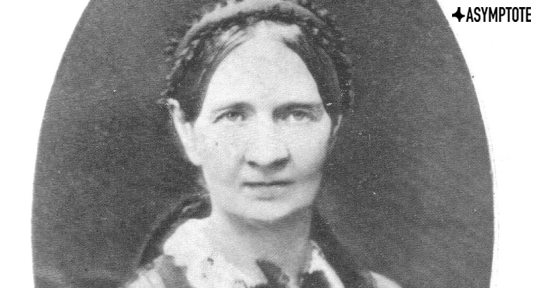“I and motherland are one. My name is Million, because for millions do I love and suffer agonies.” Adam Mickiewicz’s words from his dramatic cycle Dziady (Forefathers’ Eve) are indicative of Poland’s long tradition of voicing resistance and examining its national identity through literature. Last month, acclaimed Polish writer and past Asymptote contributor Olga Tokarczuk won the 2018 Nobel Prize in Literature, and yet has also outraged many conservatives in her own country. In this essay, Cynthia Gralla takes us through the history of resistance in Polish literature in the twentieth century, before examining Tokarczuk’s own challenge, defiance, and her place in such a history.
The past hundred years in Polish literature have been, by one reading, a history of resistance through weaponized words.
Poland has made resistance an art. Born into a Polish-American family, I have heard tales of my relatives’ wartime resistance work since childhood. Between 2012 and 2014, I lived in Lublin, Poland, conducting research into their activities during Nazi occupation with the help of a Fulbright grant. My relatives served as ski couriers in what eventually became known, in 1942, as the Armia Krajowa—literally “the Home Army.” Before that, it was called Związek Walki Zbrojnej, or “the Union of Armed Struggle”, and the Służba Zwycięstwu Polski, or “Polish Victory Service”. The name mattered little; all were incarnations of the Polish Resistance, the heart of a national body so conditioned by the vicissitudes of history and occupation that it began beating again as soon as Germany invaded. It also beat steadily throughout the nineteenth-century partitioning of Poland by Russia, Prussia, and Austria, in the classrooms of that century’s “flying university” (which educated luminaries like Marie Salomea Skłodowska, also known as Marie Curie, when teaching youth in Polish was forbidden,) and during the parched years of Communism. READ MORE…



